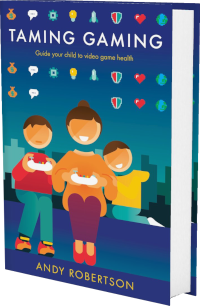 Android
Android iOS
iOS Mac
Mac Switch
Switch Wii
Wii Wii U
Wii U PC
PC PS4
PS4 PS5
PS5 Xbox One
Xbox One Xbox X|S
Xbox X|SWe've documented 17 accessibility features for Arctico, including Fully Voiced (Or No Speech), Low Pressure, No Quick Reactions, No Button Combos and No Repeated Pressing. Its accessibility is strongest in Controls and Getting Started but it also has features in Reading, Navigation, Visual and Audio to reduce unintended barriers.
This report is created with input from accessibility experts and the player community to help people find games that have the accessibility features they require. Once you have found potential games on the database, there are excellent specialist accessibility sites that offer in-depth reviews to guide your purchasing decisions.
Our accessibility examiner, Ben Kendall, first checked Arctico accessibility 2 years ago. It was re-examined by Ben Kendall and updated 2 years ago.
 Accessibility Notes
Accessibility Notes
Some of the text throughout the game is quite small and difficult to read. It is, however, generally high contrast.
Your tools give you visual directional cues by indicating the distance (which you can use to determine direction) to certain objectives and locations you need to go to, and many interactable objects also display a clearly visible bright orange indicator above them during gameplay.
As it is played in a frozen wasteland, much of the game is a very similar colour and it can subsequently be difficult to distinguish between objects.
 Game Details
Game Details
Release Date: 15/02/2022
Out Now: Mac and PC
Players: 1 (2 online)
Genres: Strategy, Traversal (Collecting, Narrative and Role-Play)
Accessibility: 17 features
Components: 3D Third-Person, Cartoon and Open World
Developer: Claudio Tulio (@Claudio_Tulio)
Costs: Purchase cost
 Controls
Controls
We've documented 4 accessibility features for Controls in Arctico which deal with how you control the game, different options for alternative inputs and whether you can remap these settings to suit your needs.
Mouse And Keyboard
Can play with the following:
Mouse and Keys: Can play with mouse and multiple keys.
Button Combinations
Specific button operation required to play
Holding Down Buttons Optional: Holding down buttons for prolonged periods (a second or more) is not required or can be switched to toggling the action on and off. This is in addition to the movement stick/button which is not considered a hold for this purpose.
Rapid Repeated Pressing Optional: Quick, repeated button pressing (more than 2 times a second) is not required, can be skipped or switched to holding a button to trigger a repeated action.
No Simultaneous Buttons: Only one button or key required at a time, in addition to direction stick(s).
Similar Games With More Accessibility Features for Controls
If you want to play Arctico, but it doesn't offer the Controls accessibility features you require, these similar games extend the Controls accessibility:
- Minecraft (11 Controls Features)
- Astroneer (10 Controls Features)
- Subnautica Below Zero (9 Controls Features)
- Stardew Valley (9 Controls Features)
 Difficulty
Difficulty
We haven’t documented any accessibility features for Difficulty in Arctico which deal with how you can adjust the challenge of play, and whether this is locked once chosen or can be adjusted as you play. The following games are similar to Arctico, and offer accessibility features for Difficulty:
- Minecraft (3 Difficulty Features)
- Climber: Sky is the Limit (2 Difficulty Features)
- Subnautica Below Zero (1 Difficulty Feature)
- Subnautica (1 Difficulty Feature)
 Getting Started
Getting Started
We've documented 4 accessibility features for Getting Started in Arctico which deal with what support is offered to get started with the game. This includes customising the experience when you first open the game via any onboarding processes it provides as well as tutorials and other assistance when you first start playing.
Assistance Getting Starting
These features aid your play of the game in terms of cognitive load on learning controls, dealing with pressure and coping with the environment and challenges.
Reaction-Time Not Critical: Individual game actions don’t need quick reactions, or there are settings to lower the requirement for quick reactions. This means you don't need to quickly press a button in response to an on-screen prompt, target a fast-moving target or skillfully complete a scenario against the clock.
Low Pressure: Game tasks aren't time-limited or there's a low-pressure mode. This avoids the pressure of being put on the clock for overarching missions, or failing tasks because you didn't reach a destination in time.
No Jump Scares: No sudden loud noises or popping-up scary visuals that unexpectedly appear without warning, or the option to disable them.
Assistance For Progressing
These features aid your progress through the game offering different ways of maintaining your progression.
Save Progress Anytime: The game automatically saves progress or you can save any time. This doesn’t mean you never lose progress, but it does mean you can stop whenever you want (without having to get to a save point) without losing progress.
Similar Games With More Accessibility Features for Getting Started
If you want to play Arctico, but it doesn't offer the Getting Started accessibility features you require, these similar games extend the Getting Started accessibility:
- Minecraft (7 Getting Started Features)
- No Man's Sky (6 Getting Started Features)
- Clawfish (5 Getting Started Features)
- Dish Life: The Game (5 Getting Started Features)
 Reading
Reading
We've documented 4 accessibility features for Reading in Arctico which deal with how much reading or listening comprehension is required, how well the game provides visual and audible access to the text and whether subtitles and captions are a good fit for purpose.
Reading Level
How much reading is required to play the game's main path or story and how complex the language is. The presence of voiced characters doesn't reduce this requirement, as it's recorded as a separate datapoint.
Moderate Reading: Moderate reading required. The quantity and complexity of reading are at a level that a high school student (14-year-old) would appreciate.
Text Visibility
High Contrast Text: Text colour contrasts to the background or can be adjusted to be. The text in menus, instructions and other information is presented in high contrast with a solid background.
Subtitles
All Speech Subtitled (Or No Speech In Game): All spoken content has subtitles, or there is no speech in the game. This means there is no requirement to hear spoken dialogue or narrative to play the game.
Voice Acted
All Dialogue is Voice Acted (Or No Speech In Game): All of the game dialogue and narrative can be voiced, or there is no speech in the game. This means there is no requirement to read the dialogue and narrative text to play the game.
Similar Games With More Accessibility Features for Reading
If you want to play Arctico, but it doesn't offer the Reading accessibility features you require, these similar games extend the Reading accessibility:
- Subnautica Below Zero (5 Reading Features)
- Stardew Valley (5 Reading Features)
- Minecraft (5 Reading Features)
 Navigation
Navigation
We've documented 2 accessibility features for Navigation in Arctico which deal with how the game provides guidance and assistance to navigate its worlds. These are only for games that have traversal and exploration in 2D and 3D spaces.
Clarity
Visual Directional Cues: Additional in-game visual cues that signpost where to go next and how close you are to arriving. This can be with camera movement to focus on your destination or important items. It can use light, breadcrumb trails, in-world pointers to identify your mission's target location.
Head-Up Display
Head-Up Display Navigation: Indication of where to go next with overlaid arrows, minimaps and waypoint markers. This supplements in-game visual and audible cues with additional guidance about where you are and where you need to go.
Similar Games With More Accessibility Features for Navigation
If you want to play Arctico, but it doesn't offer the Navigation accessibility features you require, these similar games extend the Navigation accessibility:
- Minecraft (7 Navigation Features)
- Subnautica Below Zero (6 Navigation Features)
- Climber: Sky is the Limit (4 Navigation Features)
- Dish Life: The Game (3 Navigation Features)
 Visual
Visual
We've documented 2 accessibility features for Visual in Arctico which deal with how you can adjust the visuals to suit your needs, and offer additional information if you can't hear the game.
Motion Sickness Friendly
Motion Sickness Friendly: Doesn't have 3D movement elements that may trigger motion sickness, like motion blur, depth of field and field-of-vision. Or includes the ability to disable motion blur, depth of field and field-of-vision effects.
Colour Options
Colour Blind Friendly: Game doesn’t rely on colour or can switch to colour blind friendly mode with double coding or similar way to avoid colour dependance.
Similar Games With More Accessibility Features for Visual
If you want to play Arctico, but it doesn't offer the Visual accessibility features you require, these similar games extend the Visual accessibility:
- Clawfish (7 Visual Features)
- Minecraft (6 Visual Features)
- Astroneer (5 Visual Features)
- Subnautica Below Zero (4 Visual Features)
 Audio
Audio
We've documented 1 accessibility feature for Audio in Arctico which deals with how you can adjust the audio of the game and whether audio cues compensate for aspects of the game that are hard to see.
Play Without Hearing
Play Without Hearing: No audio cues are necessary to play the game well.
Similar Games With More Accessibility Features for Audio
If you want to play Arctico, but it doesn't offer the Audio accessibility features you require, these similar games extend the Audio accessibility:
- Minecraft (4 Audio Features)
- Dish Life: The Game (2 Audio Features)
- Burly Men at Sea (2 Audio Features)
- Astroneer (2 Audio Features)
 Communication
Communication
We haven’t documented any accessibility features for Communication in Arctico which deal with how you can communicate with other players in the game and what options are available to customise and control this interaction. The following games are similar to Arctico, and offer accessibility features for Communication:
- Minecraft (3 Communication Features)
- No Man's Sky (2 Communication Features)
- Stardew Valley (1 Communication Feature)
System Accessibility Settings
In addition to the accessibility features provided in the game, you can also use system-wide accessibility settings:
PC
Windows has extensive accessibility features. Some, like colour correction, work with games. Lots of accessibility software can be used with PC games, from voice recognition to input device emulators.
Read more about system accessibility settings.
Accessibility Report supported by VSC Rating Board, PlayabilityInitiative and accessibility contributors Ben Kendall












